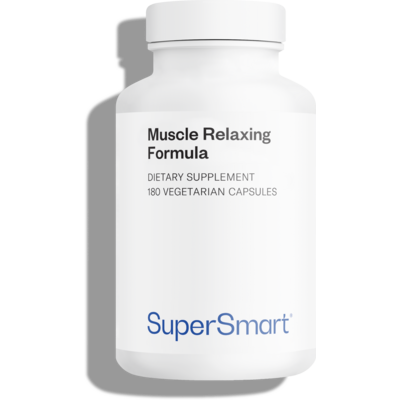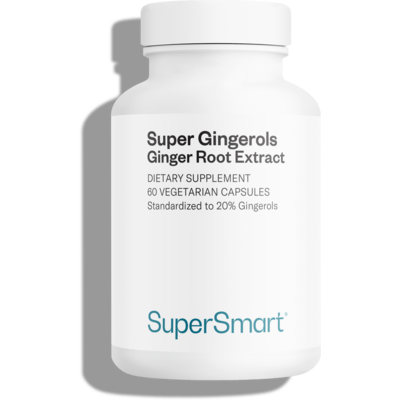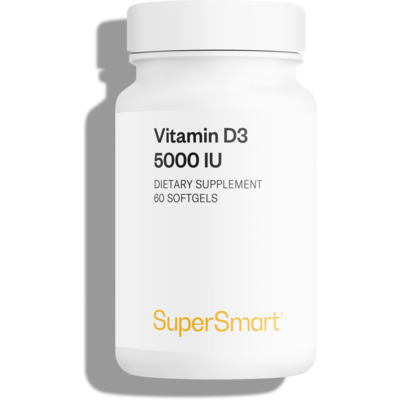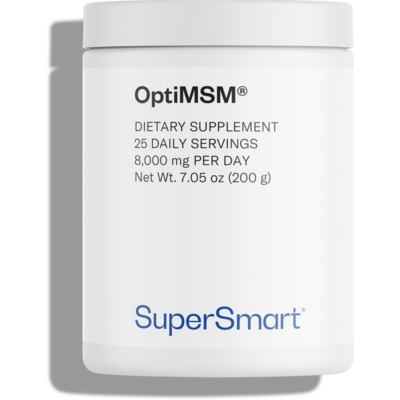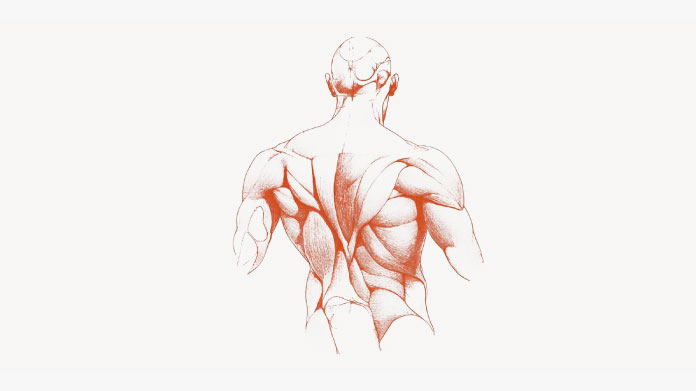Which essential oils are best for relaxing the muscles?
Poor posture, intensive exercise, and stress can all result in overstretched muscles. Which are the best essential oils (topical and oral) for relaxing them?
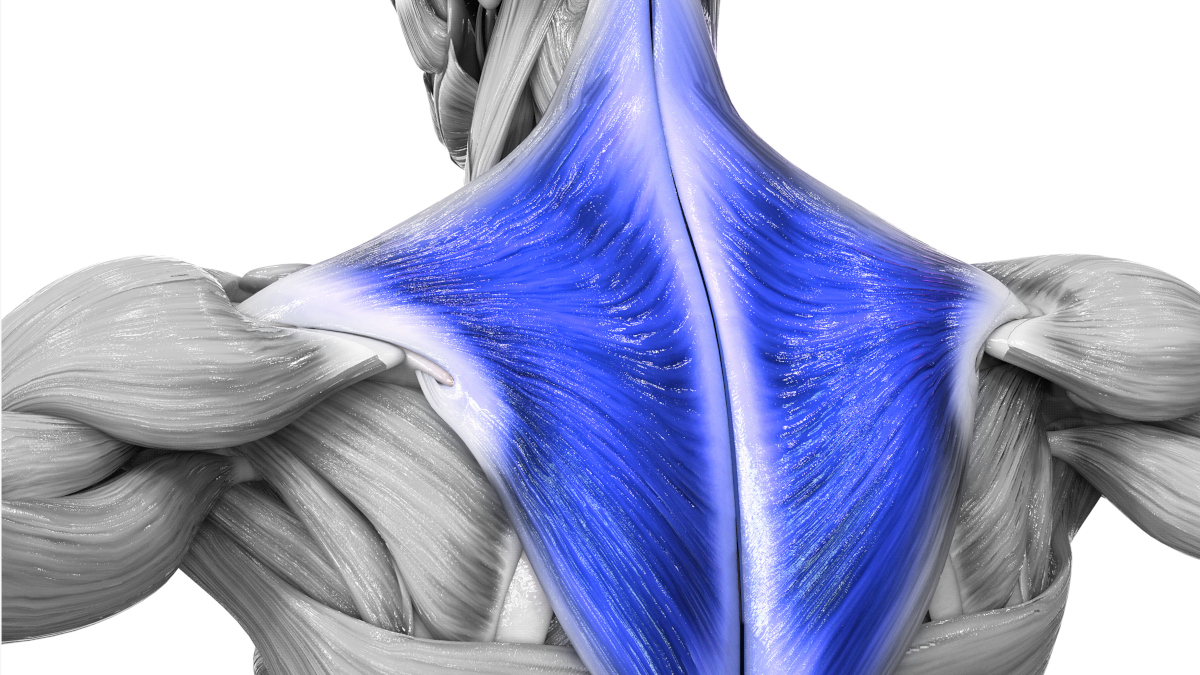
What causes excessive muscle tension?
Let’s first remember that tight, rigid muscles can be caused by:
- bad posture. This can force some parts of the body to work harder than they should;
- excess stress and anxiety. Stress makes the body stiffen up;
- physical overexertion. Over-training or allowing insufficient recovery time leads to an accumulation of muscle micro-trauma;
- not warming-up properly. You need to prepare your muscles thoroughly before subjecting them to an intense workout;
- dehydration. A lack of fluid in the body can cause muscle cramps, amongst others;
- electrolyte imbalance. Certain minerals play an important role in muscle contraction. An imbalance can cause muscle spasms;
- nutrient deficit. A lack of protein or vitamins can adversely affect the ability of muscles to function and repair themselves, etc.
How can we relax our muscles naturally?
If you’re prone to muscle tension (cramps, spasms…), it’s important, in general, to:
- avoid stimulants which can exacerbate stress and therefore tension;
- eat healthily to prevent any muscle-damaging nutritional deficiencies;
- stay well-hydrated to maintain good fluid levels in the body;
- Stretch regularly (especially before and after exercise) to support your flexibility, improve your circulation and help release any built-up tension.
Essential oils and muscle relief: a long history
Aromatherapy is the therapeutic use (topical, oral, inhalation …) of essential oils extracted from plants.
Plant-based oils have been used for thousands of years in India, China, Egypt, and by Greek and Roman civilizations.
In ancient times then, fragrant plant oils were popular for helping to relax overstretched muscles thanks to their anti-spasmodic, anti-inflammatory, and analgesic properties.
Historical use of therapeutic massage with essential oils for muscle relief is well-documented. The practice became popular again in the 20th century with the revival of aromatherapy.
A word of advice: it’s important to exercise caution when using essential oils, (topically and even more so, orally) as they are very highly concentrated. Most essential oils for topical use are therefore diluted in a carrier oil (sweet almond, jojoba, or coconut oil …) to prevent any irritation. Be sure to seek professional advice if you need to.
Which are the best topical-use essential oils for muscle relief?
Essential oil of lavender, perfect for tight, tense muscles
Essential oil of lavender(Lavandula angustifolia) is known for its calming, relaxing properties.
It is widely used diluted in topical applications, for relaxing tight muscles and relieving mild pain (1).
Essential oil of peppermint for relieving sore muscles?
The famous essential oil of peppermint (Mentha piperita) is popular for its refreshing and potentially analgesic effects.
It can be applied topically, always diluted, to ease muscle pain and tension(2).
The benefits of essential oil of eucalyptus
Essential oil of eucalyptus (Eucalyptus globulus) is traditionally recognized for its anti-inflammatory properties.
It is widely used, diluted, in topical applications, for reducing muscle aches (3).
Are you familiar with the essential oil of American wintergreen?
Essential oil of American wintergreen or checkerberry (Gaultheria procumbens) contains methyl salicylate, an aspirin-like chemical compound.
It is commonly used in topical applications for painful joints and muscles.
Essential oil of rosemary and muscle relaxation
Essential oil of rosemary(Rosmarinus officinalis) is thought to have powerful anti-inflammatory and stimulant properties.
Some people use it topically to reduce inflammation and muscle pain (4).
What are the best oral-use essential oils for promoting relaxation?
Certain essential oils can be taken orally to loosen the muscles and promote relaxation more generally.
Some supplements in capsule form thus contain specific, pro-relaxation essential oils in forms and amounts suitable for ingestion. Ideally, they contain:
- essential oil of true lavender, known for promoting relaxation and sleep;
- essential oil of caraway, which reduces muscle spasms;
- essential oils of aniseed, rosemary and caraway, which help to ease digestive discomfort, and so support relaxation;
- essential oil of mandarin which many aromatherapy specialists believe has calming effects.
You can find these various essential oils in synergistic formulations for oral use (such as Organic Relaxing Oil Blend capsules).
Other natural compounds effective for muscle relaxation
There are other natural substances to be taken orally that are likely to help relieve muscle problems.
Vitamin D (which supports normal muscle function), ginger (a known anti-inflammatory) and MSM (a sulfur-containing compound naturally present in our joints and muscles) are all being studied for their potential muscle-relaxing effects.
Some synergistic muscle relaxation formulations also combine, for example, magnesium, which supports normal muscle function, with soothing plant extracts like valerian, lemon balm, passionflower and camomile (one such example is Muscle Relaxing Formula, made with organic ingredients).
SuperSmart ADVICE
References
- Cavanagh HM, Wilkinson JM. Biological activities of lavender essential oil. Phytother Res. 2002 Jun;16(4):301-8. doi: 10.1002/ptr.1103. PMID: 12112282.
- Meamarbashi A. Instant effects of peppermint essential oil on the physiological parameters and exercise performance. Avicenna J Phytomed. 2014 Jan;4(1):72-8. PMID: 25050303; PMCID: PMC4103722.
- Silva J, Abebe W, Sousa SM, Duarte VG, Machado MI, Matos FJ. Analgesic and anti-inflammatory effects of essential oils of Eucalyptus. J Ethnopharmacol. 2003 Dec;89(2-3):277-83. doi: 10.1016/j.jep.2003.09.007. PMID: 14611892.
- Borges RS, Ortiz BLS, Pereira ACM, Keita H, Carvalho JCT. Rosmarinus officinalis essential oil: A review of its phytochemistry, anti-inflammatory activity, and mechanisms of action involved. J Ethnopharmacol. 2019 Jan 30;229:29-45. doi: 10.1016/j.jep.2018.09.038. Epub 2018 Oct 2. PMID: 30287195.
Keywords
12 Hours
The new packaging is excellent
The new packaging is excellent - finally! No more squashed boxes and torn envelopes.
GORAN
1 Days
Great Product
Great Product
Larry Garrett
5 Days
Quick shipping
Quick shipping; good price. No issues!
Mary McCarty
7 Days
Thr product is very good and is helping…
Thr product is very good and is helping me on my health. Then is always on time
LUGO Luz
9 Days
Buying was fine
Buying was fine. I had problems with the website not recognizing my login info, and had to call to get it fixed. Other than that, everything was good.
David S. Clark
9 Days
Your super maca and super ginseng are…phenomenal
Your super maca and super ginseng are phenomenal supplements that compliment each other when taking them together. Fantastic feeling of well-being and lots of mid day energy without the crash.
Keith Mason
12 Days
I have had amazing results with every…
I have had amazing results with every supplement I've purchased. I am extremely satisfied with this company
kirstin Torres
12 Days
Fine products
Fine products . They are on the leading edge of online supplements. The only issue -so far-is they sometime run out of subscription items.
Jason Argos
15 Days
The ordering process is very user…
The ordering process is very user friendly and the products always come in a timely manner.
CARTER Rhonda
16 Days
The price for Dr
The price for Dr. Pero's AC-11 is reasonable and in line with his views. (my former colleague). Keep it pure.
CAMPBELL Clayton
19 Days
Right on every time.
Right on every time.
Arthur Nicholas
22 Days
They are cheaper than everyone else and…
They are cheaper than everyone else and the shipping was fast. Great company.
Patricia Adams
28 Days
Availability of quality health…
Availability of quality health supplements and it's wide variety is impressive. Ordering is seamless and shipping even during the holidays is well streamlined.
Mohamad Hussein
43 Days
A Product worth waiting for when not…
A Product worth waiting for when not available and then arriving as a surprise!
DOMINIC
44 Days
On time shipping
On time shipping
GEORGE Verne


